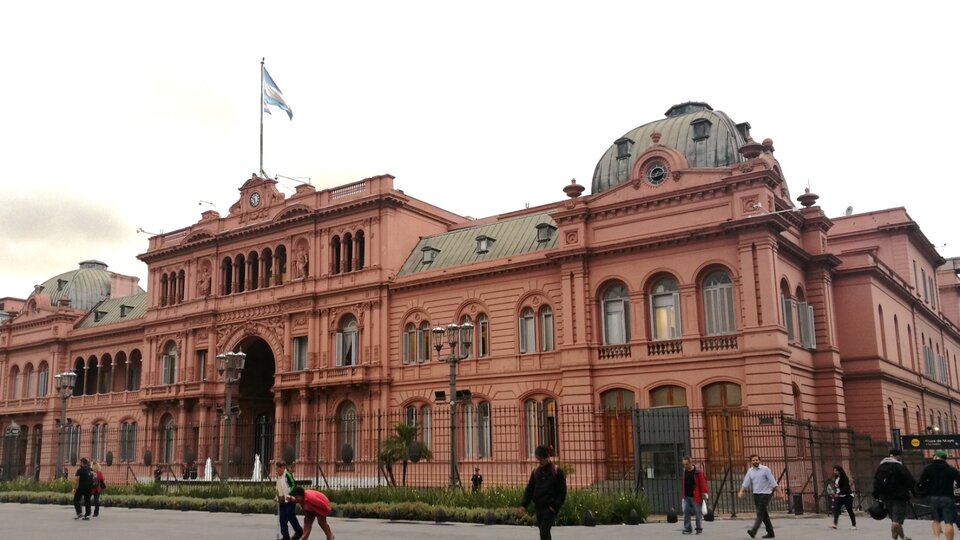List of public companies which mild opposition allowed the government to privatize. From airlines to enersa

The opinion of the abbreviated version of the omnibus law – the government insists on calling it the basis – which La Libertad received on Thursday afternoon in the Chamber of Deputies, with the unconditional support of the PRO, The privatizations that the management of Javier Miley tried to implement in the first initiative sent in December closed with 10 percent, In the first version of the project in “Annex I” 40 state companies were to be privatized, now only 4 remain in the “Privatization” category: Aerolíneas Argentinas, Enarsa, Radio and Television Argentina and Intercargo. In addition, another 5 companies may go into private hands or be concessioned; While the other two may involve private capital, but will retain majority state participation.
Of the five that are subject to “privatization/concession”: Argentine Water and Sanitation (AISA), Correo Argentino, Belgrano Cargos, Corredores Viales and Sociedad Operadora Ferroviera (Sofse). These are five companies that were already granted concessions during Menemism and returned to state control during the government of Néstor Kirchner. The Argentina Mail case is remembered for being in the hands of the Macri family, which is still being sued for a bankruptcy procedure, with the judiciary refusing to proceed.
The “Privatization” chapter is the second chapter of the opinion signed by the ruling party, the sectors of PRO and UCR, and the We Make the Federal coalition. In Articles 7 to 23; The conditions under which privatization will be carried out are detailed in Law 23,696, approved during the government of Carlos Menem to test the first state scrapping. The majority project contemplates the amendment of six Articles (17,18,20,22 and 35) of these Regulations and the repeal of Sections 3, 4 and 5 of Article 16 and Articles 32 and 33.
Articles 8 and 9 of the project specify special conditions for privatization, along with the majority opinion. Nucleoelectrica Argentina Sociedad Anónima (NASA) and Rio Turbio Carboniferous Deposits (YCRT), For both cases, the initiative states that it “may organize only a shared ownership program and hold a class of shares for that purpose; and may involve the participation of private capital, including national states. Must retain control or have a majority stake in the capital.
In the case of Nucleoelectrica, the article states that expanding a plant’s capacity, going out of service, and incorporating shareholders into the company would require an affirmative vote of the state.
Meanwhile, during the conversation with friend opposition, Mohd. The government delisted Banco Nación and its subsidiaries., Telum SE is also not on the list; The state news agency, which the government announced was closing and restructuring in early March and has yet to present any plans in this regard, has been surrounded by a security operation and its 700 employees have been furloughed.
Other companies that were on the original list and left out include Fabricación Militares, Tandonor, ARSAT, General Administration of Ports. In negotiations with the governors, Dionisio Water Mining Sites (YMAD), the Radio of the National University of Littoral SA and the Radio and Television Service of the University of Cordoba SA were left behind.
From the first version of the Base Law, only four companies were subject to privatization:
- Argentine Airlines
- Enersa
- Argentine radio and television
- Intercharge.
The flag carrier is running a bailout plan led by its boss, Fabian Lombardo, who this week publicly announced plans to implement cuts to “halve operating losses”, including closing domestic seasonal routes. shall include. With the help of the airline, the auction will be negotiated for Intercargo, the state company that provides ground services, ramps and access bridges.
The sale of Enarsa – created in 2004 – means transferring the structure of a firm that studies, explores and exploits hydrocarbon deposits to the private sector; As well as the functions of transportation, storage, distribution and marketing and industrialization of that raw material and its derivatives.
Meanwhile, the sale of Radio and Television Argentina is a blow to the media map and federal communications. Since its creation in 1952, state television was only transferred to private companies during the administration of Carlos Menem; While the public radio station network is the only network with a network of more than 40 stations in the entire country.
